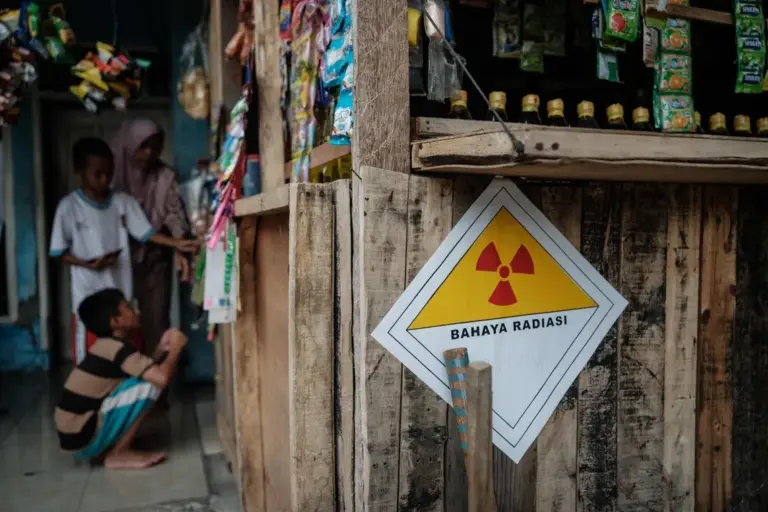MANILA – SteelAsia Manufacturing said it was ordered by the Philippine Nuclear Research Institute (PNRI) to take custody of 23 cargo containers allegedly containing radioactive zinc dust and rejected by Indonesia, adding it had no connection with the shipments.
The Philippine steel company said it was tagged as the source of the radioactive materials by PNRI, and ordered to entomb the containers in its Calaca scrap recycling plant in Batangas province, according to a statement on Oct 25.
“The containers did not originate from SteelAsia,” the company said. The order to entomb the containers is “potentially endangering the community and other corporate locators in that industrial zone – if indeed there is a threat of radioactivity”, it said.
The Philippine government in October said it
will investigate the source of a shipment to Indonesia
that contained zinc powder contaminated with radioactive material cesium-137.
The shipment was sent by Zannwann International Trading, a Chinese trading firm with offices in the Philippines, a person familiar with the situation told Bloomberg.
The Philippines is investigating steel processing facilities that allegedly supplied the zinc dust to Zannwann, the person said.
PNRI’s top official, Mr Carlo Arcilla, on Oct 26 told Bloomberg News that SteelAsia and another company were the sources of the zinc dust in the containers, and SteelAsia’s products have “radioactivity” while the other firm’s did not.
SteelAsia chief operating officer Rafael Hidalgo said PNRI, in a letter dated Oct 21, informed the company that its plant was contaminated with cesium-137 following tests conducted by the institute earlier in October.
“But we will contest that,” Mr Hidalgo told Bloomberg by phone late on Oct 25. He said PNRI should publicly disclose relevant data related to the agency’s findings.
Zannwann did not immediately respond to requests for comment outside of regular business hours.
An Indonesian investigation in September uncovered cesium-137 at a metal processing hub that supplies materials for construction and manufacturing in a western Java industrial park. Indonesia halted imports of scrap metal in October.
Cesium-137 is an artificial radionuclide used in medical devices and gauges, and is also one of the by-products of nuclear fission processes in reactors and weapons testing.
Exposure to the isotope can raise the risk of cancer, according to the US Centres for Disease Control and Prevention.
SteelAsia, in its statement, said its steel-making process does not use nor produce radioactive materials, and it does not make or export zinc dust, which is a by-product of its manufacturing process.
It also said that if there is radioactivity detected within the containers, the company has no technical capability, facilities, or training to handle radioactive waste.
“All scrap metals purchased for melting and production are tested for radioactivity, and none had ever tested positive,” SteelAsia said, adding its radiation monitoring equipment is regularly calibrated under PNRI supervision.
Mr Arcilla disagreed with SteelAsia, telling Bloomberg there’s “radioactivity within their property” following tests made by PNRI. Neither side provided documents to back their claims.
SteelAsia said it had voluntarily suspended operations at its scrap recycling plant out of caution, and “without conceding the presence of any radioactive materials in the facility”.
A Philippine inter-agency committee that includes the departments of interior and local government, environment, defence and health is looking into the matter. BLOOMBERG
Images are for reference only.Images and contents gathered automatic from google or 3rd party sources.All rights on the images and contents are with their legal original owners.

